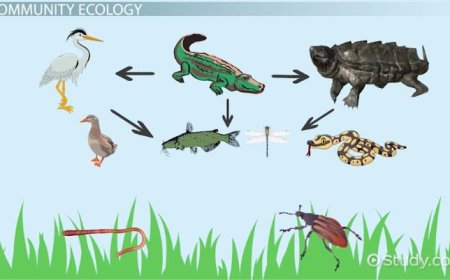Do Plants Feel Pain What Science Says
Do plants feel pain? Explore the science behind plant responses to environmental stress and how they communicate. Learn what research says about plant sensitivity and the debate on plant consciousness.

The question of whether plants can feel pain has emerged as a notable topic of debate in both scientific and philosophical circles. Defined as "an unpleasant sensory
Research has revealed that plants can detect and respond to environmental stres- sors through intricate signaling mechanisms involving plant hormones and chemical responses. They exhibit behaviors such as phototropism, which demonstrates their ability to react to light, and may even produce distress signals in response to herbivory or damage.[4][5] However, these responses are generally interpreted as automatic and genetically programmed rather than indicative of conscious awareness or the capacity to feel pain, sparking significant discussion among scientists regarding the concept of plant sentience.[6][7]
The debate extends into ethical considerations, questioning how humans interact with plants and the implications of recognizing their complex behaviors. Some argue that acknowledging potential plant sentience could lead to more respectful and sus- tainable practices in agriculture and environmental stewardship, while others firmly oppose this notion, emphasizing the absence of sensory organs necessary for true sentience.[8][9] As scientific understanding continues to evolve, the exploration of plant responses and communication mechanisms raises important questions about the nature of consciousness and the ethical treatment of all forms of life within ecosystems.
Definition of Pain
Pain is a complex and multifaceted experience typically defined as "an unpleasant sensory and emotional experience associated with actual or potential tissue damage" according to the International Association for the Study of Pain (IASP)[1]. This defini- tion highlights that pain encompasses both physiological and subjective components, necessitating a conscious experience facilitated by intricate neural mechanisms[2].
Mechanisms of Pain
The experience of pain begins with nociception, which involves the detection of harm- ful stimuli through specialized sensory cells known as nociceptors. These nociceptors are integral to the nervous system, as they transmit signals that are processed
in the brain. In animals, this processing occurs in specific regions responsible for various aspects of pain perception, such as location and emotional response, thereby illustrating that pain is not merely a reflexive action but involves higher-order brain functions[3].
Biological Structures Required for Pain
For an organism to experience pain, it must possess certain biological structures, including nociceptors, a nervous system, and specific brain regions that interpret
Types of Pain
Pain can manifest in various forms, primarily categorized into acute and chronic pain. Acute pain is sudden, often severe, and typically resolves quickly once the stimulus is removed, serving a protective biological function. Chronic pain, on the other hand, persists beyond the expected healing time and does not serve a biological purpose, often leading to significant stress and impairment[4]. This distinction underscores the complex nature of pain and its physiological and psychological dimensions.
Plant Biology
Cellular Structure and Signaling
Plants are composed of cells that engage in intricate cell signaling processes both within and between individual cells. A fundamental aspect of this signaling involves plant hormones, which include auxins, cytokinins, ethylene, gibberellins, and abscisic acid. These hormones are produced by various parts of the plant, such as leaves, flowers, shoots, roots, and fruits, and they play crucial roles in initiating signaling pathways that affect plant growth and responses to environmental stimuli[5][6].
Plant Responses to Environmental Stress
Plants possess a variety of adaptive mechanisms to cope with abiotic stressors, such as cold temperatures and mechanical strain. For example, cold-induced stress triggers alterations in gene expression, leading to changes in osmolyte levels, mem- brane integrity, and stress-responsive proteins. Such adaptations enable plants to survive challenging conditions, as seen in studies involving Arabidopsis thaliana and grapevine, which demonstrated enhanced tolerance to low temperatures through specific bacterial treatments[7]. Moreover, thigmomorphogenesis, a slow develop- mental response to continuous mechanical stress, exemplifies how plants adjust their growth patterns to enhance structural integrity, often involving the hormones ethylene and jasmonate[8].
Defense Mechanisms and Chemical Signaling
In addition to physical adaptations, plants produce a range of chemicals as defensive responses against herbivores and pathogens. The action of auxins and gibberellins exemplifies how plant hormones trigger specific growth responses, such as phototro- pism, where plants bend towards light sources. This ability to detect and respond to
The Debate on Plant Consciousness
Recent discussions in the scientific community have raised questions about the cognitive capacities of plants, particularly regarding whether they possess forms of intelligence or awareness. While some studies suggest that plants exhibit learn- ing and memory capabilities through their adaptive behaviors, these actions are generally explained by genetic programming and biochemical signaling rather than conscious decision-making[9][10]. The absence of a nervous system or brain-like structures further complicates claims of plant consciousness, as their responses to stimuli can be attributed to sophisticated signaling pathways and evolutionary adaptations rather than a subjective experience of pain or emotion[11][9].
Scientific Studies on Plant Responses
Plant Sensory Mechanisms
Recent research has indicated that plants possess sophisticated sensory systems enabling them to detect and respond to various environmental stimuli. This ability to respond to changes, such as light, gravity, and pathogen presence, is a result of evolutionary adaptations favored by natural selection[8]. Unlike animals, which
utilize nervous and endocrine systems for response mechanisms, plants rely solely on chemical signaling pathways facilitated by hormones[8][7]. These hormones, akin to animal hormones, serve as signaling molecules that trigger cellular responses essential for growth and survival[8].
Chemical and Electrical Responses
Studies have demonstrated that plants can exhibit chemical defense responses when subjected to stressors such as herbivory. For instance, research from the University of Missouri found that plants can sense the weight of feeding caterpillars, prompting a defensive chemical reaction to mitigate damage[12]. Furthermore, plants are known to produce action potentials—electrical signals that propagate through plant tissues in response to environmental changes[13]. These findings suggest a level of awareness and response not traditionally attributed to plant life.
Ultrasonic Emissions
A 2019 study revealed that dehydrated or damaged plants emit ultrasonic sounds that could potentially be detected by surrounding organisms[14]. These sounds, ranging from 20 to 100 kilohertz, are beyond the hearing range of humans but may be perceived by certain insects and mammals, signaling distress in a way that could alert nearby plants or animals to potential threats[14].
Stress Responses and Adaptation
Plants respond to acute stressors in a manner similar to the fight-or-flight response observed in animals. When facing immediate threats, such as pests or diseases, plants initiate hormonal responses that facilitate rapid adjustments in their physi- ology[15]. This process often involves the synthesis of stress-tolerant proteins and the generation of reactive oxygen species, which play critical roles in signaling and adapting to adverse conditions[7]. Additionally, plants can communicate damage signals to uninjured parts, effectively preparing them for potential threats[12].
Plant Communication and Cognition
Emerging research is beginning to explore the complexities of plant communication and cognition. Evidence suggests that plants engage in signaling and information processing akin to cognitive behaviors, utilizing neurotransmitter-like compounds and specific receptors[16][13]. These developments challenge traditional views on plant intelligence, indicating a capacity for interaction with both abiotic and biotic environments that may suggest a form of cognitive functioning[16][13].
The integration of these various mechanisms provides a more comprehensive under- standing of how plants perceive and respond to their surroundings, ultimately shaping their survival and evolutionary success.
Perspectives on Plant Sentience
The question of whether plants can be considered sentient beings has sparked considerable debate among scientists and philosophers. While some researchers argue for the possibility of plant sentience based on their complex responses to environmental stimuli, others firmly deny this notion, citing the lack of conventional sensory organs and a central nervous system as key reasons for skepticism[13][17].
The Case for Plant Sentience
Advocates for the concept of plant sentience emphasize the intricate ways in which plants interact with their surroundings. Plants exhibit remarkable adaptive behaviors, such as phototropism, where they grow towards light sources, which, while not indicative of consciousness, showcases their ability to respond to environmental cues[2][9]. Moreover, some studies highlight that plants can communicate distress signals through root exudates or volatile organic compounds, suggesting a level
The Argument Against Plant Sentience
Conversely, a significant body of scientific opinion maintains that plants do not pos- sess sentience in the traditional sense. Critics argue that the mechanisms by which plants respond to stimuli are largely automatic and hardwired, rather than indicative of conscious awareness[17]. The argument rests on the assertion that true sentience requires sensory organs and the capacity to feel pain, both of which plants lack. This viewpoint posits that while plants can react to changes in their environment—such as light and chemicals—their responses do not reflect any conscious experience of pain or emotion, as observed in animals[19][20].
Ethical Considerations
The debate over plant sentience raises important ethical questions regarding how humans interact with plants and ecosystems. Recognizing that plants possess a degree of complexity and sensitivity may lead to more respectful treatment of plant life and encourage sustainable practices in agriculture and conservation[2][18]. As the discussion evolves, it remains crucial to balance scientific inquiry with ethical considerations, ensuring that plant welfare is regarded as part of broader environ- mental ethics. Ultimately, the dialogue surrounding plant sentience reflects a growing awareness of the intricate relationships within ecosystems and the varying forms of life they encompass[13][2].
Ethical Implications
The question of whether plants can feel pain has significant ethical implications for how humans interact with the natural world. While there is currently no scientific consensus that plants experience pain or possess sentience akin to that of animals, discussions surrounding the potential for plant sentience prompt a reevaluation of agricultural and environmental practices. If plants were to be proven capable of experiencing stress or discomfort, this would necessitate a more compassionate approach to farming and cultivation, emphasizing sustainable and ethical practices that minimize harm to plant life[21][2].
The ethics of eating highlights the contrast between consuming plant-based foods and animal products. Unlike animals, which are known to experience pain and suffering, plants are generally not considered sentient beings. This distinction allows for the argument that a plant-based diet is ethically preferable, as it does not involve causing pain to sentient creatures[22]. Nevertheless, this perspective is not without its complexities. Some argue that ethical considerations should extend to the treatment of plants, advocating for mindful practices that respect their life processes, such as avoiding excessive pesticide use and ensuring responsible crop management[2].
Cultural practices also play a significant role in the ethical discourse surrounding the use of plants and animals for food. Indigenous communities, for instance, often incorporate rituals that honor the lives of the animals they hunt, reflecting a deep respect for the interconnectedness of life within their ecosystems[22]. Such practices can serve as models for ethical consumption that balances human needs with environmental stewardship.
Furthermore, while current scientific understanding does not support the idea of plant sentience in the same way as that of animals, the exploration of plant intelligence and response mechanisms continues to develop. For instance, plants demonstrate sophisticated adaptations to environmental stresses, such as drought and salinity, raising questions about their capacity for experience in non-traditional ways[23][7]. This ongoing research may ultimately inform our ethical frameworks and challenge preconceived notions of consciousness and moral consideration in the plant king- dom.
References
[1] : Do Plants Feel Pain?
[2] : Do Plants Feel Pain Just Like Humans and Animals?
[3] : Do Plants Feel Pain? No, and Here’s How Scientists Know - Sentient Media
[4] : Pain Perception in Animals - Merck Veterinary Manual
[5] : 28.16: Signaling in Plants - Biology LibreTexts
[6] : The Plant DNA Damage Response: Signaling Pathways Leading to Growth ...
[7] : Deciphering the mechanisms, hormonal signaling, and potential ...
[8] : 23.6 Plant Sensory Systems and Responses - OpenStax
[9] : Do Plants Think? Debunking the Myth of Plant Consciousness
[10] : Don't Waste Your Emotions on Plants, They Have No Feelings - Live Science
[11] : Plants don’t have feelings and aren’t conscious, a biologist argues
[12] : Do Plants Feel Pain, Stress or Any Sensation? - GenV
[13] : Plant Sentience: Theoretical and Empirical Issues
[14] : Do Plants Feel Pain? A Primer on Plant Neurobiology
[15] : Plants Scream: Do Plants Feel Pain And Stress? - Science ABC
[16] : Plants | Special Issue : Plant Signaling, Behavior and Communication - MDPI
[17] : 4 Reasons Why the "Plant Sentience" Argument Doesn't Work
[18] : "Plant Sentience" by Miguel Segundo-Ortin and Paco Calvo
[19] : Can we see past our soul-blindness to recognise plant minds? - Aeon [20]: Chapter 39 - Plant Responses to Internal and External Signals
[21] : Plant sentience and the case for ethical veganism
[22] : Why Plants Don't Feel Pain, But Animals Do: A Reflection on Nature's ...










































